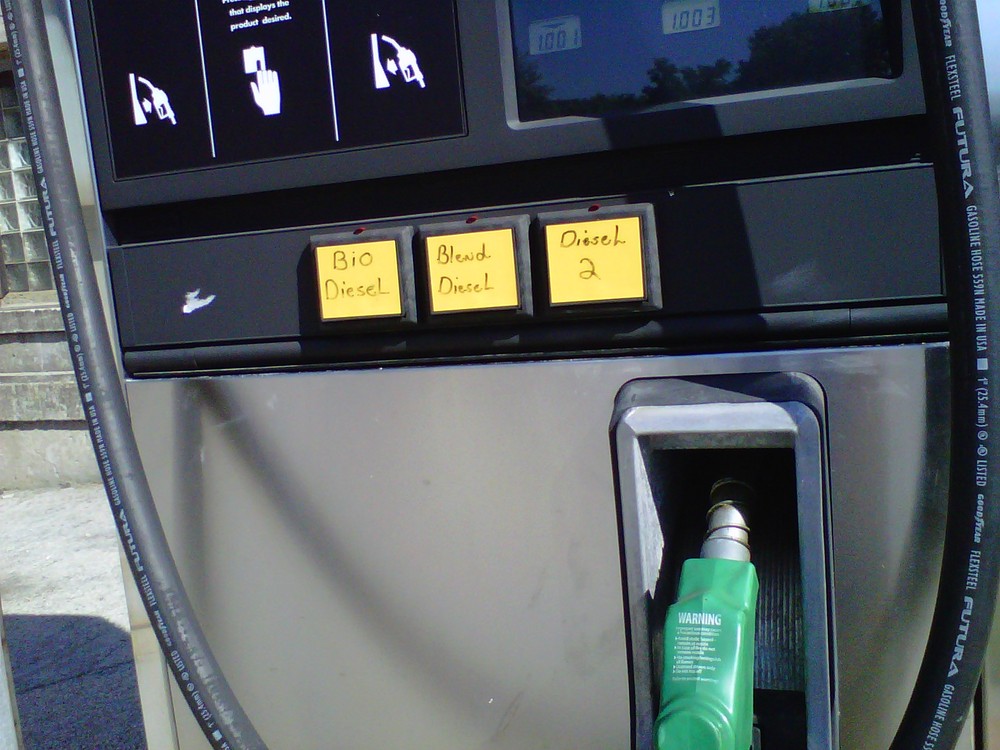Chicago Park District launches new biodiesel production program



Photo: Pete Probst, Indigenous Energy
July 13, 2011
BY Bryan Sims
Through a public/private partnership with Darling International, in participation from this year’s Taste of Chicago and area restaurants for the supply of feedstock, the Chicago Park District officially launched a biodiesel production program that will provide its fleet of light-duty diesel vehicle fleet and several of its lawnmowers with ASTM-certified biodiesel.
Kyle Powers, project manager at the CDP’s office of green initiatives who helped spearhead the creation of the program, explained to Biodiesel Magazine that the idea of creating the program began about two years ago after he attended biodiesel classes at Loyola University-Chicago. During that time, Powers was also managing the CDP’s fleet of vehicles. Wanting to familiarize himself with biodiesel, he enrolled in Loyola’s first continuum education class that focused on biofuels and biodiesel last March through May of this year. During his tenure at the CDP, Powers improved its fleet efficiency and also increased the hybrid vehicle count from two to about 45 (it has 57 now). Recognizing in 2009 that Illinois was moving from B2 to B5 for state and local government fleets, he also made the decision to transition the district’s light-duty pickups and vans from unleaded to diesel.
“The class at Loyola was fantastic and it was definitely the catalyst that led to my development of the biodiesel production program at the CDP,” Powers said.
Last year, CPD repurposed an underutilized fleet fueling site that’s capable of dispensing B5, B20 and B100. Nearly 300 of the district’s vehicles will be able to fuel up at the site, which will produce 20,000 gallons this year and eventually 50,000 gallons in subsequent years, according to Powers. K-plus Mechanical Services Inc. was responsible for design and build-out of the biodiesel production facility while Oak Park, Ill.-based Indigenous Energy is operator and manager of the new processing facility. Total cost for the biodiesel processing equipment ran up to about $650,000, but most of that was offset thanks to a $250,000 grant from the U.S. DOE.
Advertisement
“We’re mandated to fill up with B5, but most of the light-duty trucks will be pushing it to B11,” Power said, adding that he foresees B20 being the blend primarily used on an average basis in its vehicle fleet. “Our lawnmower fleet is rated to B20 and we’ll primarily be using it in some of our light-duty and our lawnmower fleet. We also have agricultural tractors that are rated up to B100, which we use to till our beaches in the summer and other activities in the parks.”
Powers emphasized the importance of the CDP’s strategic partnership with Darling International as the nation’s leading oil recovery and renderer will collect used cooking oil from area vendors, clean it and supply CDP yellow grease free of charge as part of a 10-year commitment.
“Through our park district vendors and also through Darling’s donation of the yellow grease we’ll have enough to produce however much we need for our vehicles,” Power said.
Advertisement
The projected fuel cost savings is about 50 cents per gallon at a B20 level and $2.50 per gallon at a B100 level, according to Powers.
Indigenous Energy accessed technical and lab expertise from BioVantage Fuels LLC, which owns and operates a 5 MMgy biodiesel plant in Belvidere, Ill., on the implementation of the CDP biodiesel program. While it’s the company’s first foray into actual production of biodiesel, Indigenous Energy’s owner Pete Probst thinks CDP’s biodiesel program could be a model for other municipalities to follow for sourcing locally-sourced feedstock and fueling biodiesel in fleets.
“I really think that this is a very important step for our country to be able to be more independent and it really takes leadership to show that this can be done,” Probst said.
Upcoming Events





